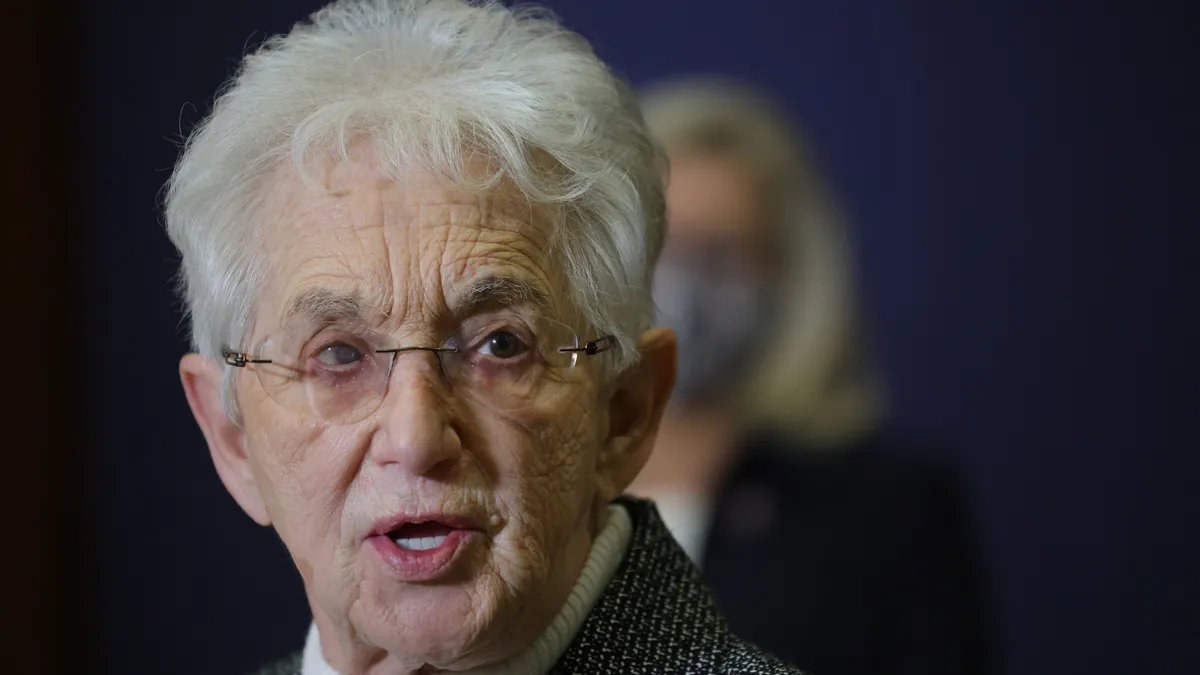A proposed rule to improve Head Start’s workforce retention and programming quality veers from that intent and “reads more like a collective bargaining agreement,” according to a letter sent Friday by Republican lawmakers to U.S. Secretary of Health and Human Services Xavier Becerra.
The letter — co-written by Rep. Virginia Foxx, R-North Carolina, and Rep. Aaron Bean, R-Florida — criticizes HHS’ proposal to increase Head Start staff’s wages and benefits as “misguided.” The department has proposed raising pay and establishing a $15 minimum wage, as well as improvements for staff health and mental wellness and creating brief workday breaks for staff.
HHS previously noted that average Head Start wages would rise by more than $10,000 a year if the rule is finalized. Such a move would help equalize pay with other public preschool teachers, the department said. Head Start is a federally funded program through HHS that supports children from low-income families by providing early childhood and preschool services. Head Start works with 250,000 staff and serves more than 840,000 children.
Foxx, who serves as chair of the House Committee on Education and the Workforce and Bean, chair of the Subcommittee on Early Childhood, Elementary and Secondary Education contend, however, that it’s “inappropriate” for HHS to mandate a wage that is higher than the current federal minimum wage of $7.25 per hour.
“Pay parity draws inappropriate parallels between the nature and qualification of teachers. Primary education teachers often hold degrees and certifications not required for early childhood instructors,” Foxx and Bean said.
Another challenge that could arise from increasing wages on a competitive basis, they said, is that Head Start grantees would be “set up to fail as they chase a moving target.” It’s also unclear as to whether a Head Start grantee would have to reassess their own wage structure even after matching their salaries to kindergarten through 3rd grade educators if a state or district revisits teacher salaries, the lawmakers wrote.
The HHS proposal would undermine the way Head Start grants currently permit decisions on wages to be locally driven by grantees, Foxx and Bean said. “Regulating wage scales within the Head Start program as the NPRM [Notice of Proposed Rulemaking] proposes is neither necessary nor the appropriate role of the federal government,” they wrote.
The National Head Start Association also released its submitted comment on the proposed rule Friday. The association said that while the proposal outlines “worthy goals,” such efforts are also costly, and — barring more funding from Congress — the number of children permitted to attend Head Start classrooms will have to shrink in order to offset the uptick in costs.
The association also took note of concerns over the proposal’s limitations on local autonomy, calling the proposed rule “overly prescriptive.” Because small, rural and tribal programs are the least likely to have the resources to meet these new suggested requirements, NHSA said, these communities will also be the most heavily affected.
Friday marked the final day for the public to submit comments regarding the proposed rule. Nearly 1,400 comments were submitted.












